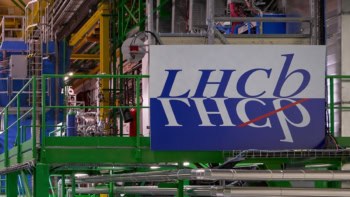
The COVID-19 pandemic may be having subtle but long-lasting impacts on scientific activities – especially on women researchers and those with young children. That is according to a new US analysis, which suggests that the number of non-COVID research projects being initiated may have fallen by almost a third since the start of the pandemic. Researchers’ working hours are, however, now returning to pre-pandemic levels.
In their study, management scientist Dashun Wang of Northwestern University in Illinois and colleagues compared the results of two online surveys examining the impact of COVID-19 on the working lives of scientists in Europe and the US. The first survey was undertaken in April 2020 and had 4535 respondents, while the other was conducted in January of this year and received 6982 replies.
The disproportionate impact the pandemic has had on women and parents of young children means that there is a risk academia will permanently lose talented researchers
Tatyana Deryugina, University of Illinois at Urbana-Champaign
COVID-19 has dramatically affected research output. Respondents who were not involved in COVID-related studies said they had published 9% fewer papers and reported a 14.8% drop in submissions – consistent with measurements of publication rates. Meanwhile, 27% of respondents said they had launched no new projects at all in 2020, whereas only 8.9% has started none in the previous year.
These figures, the authors say, mean that the full impact of the pandemic has not yet emerged. In particular, respondents not involved in COVID research reported an average decrease in new projects of 36.2% in 2020, the equivalent of losing one new project (of the usual three) per scientist. This decline in new projects appears to be the same across all scientific disciplines, but it has disproportionately affected women and people with young children.
Disproportionate impact
Wang and colleagues speculate that the decrease in new non-COVID projects may stem from fewer of the face-to-face and spontaneous interactions that trigger ideas – a notion supported by a fall in new collaborations seen in pre-print authorships in late 2020. The psychological toll of the pandemic may be to blame too, the authors say.
There are some brighter spots too. Respondents to the first survey reported that their weekly working time had dropped by an average of 7.1 hours in comparison with pre-COVID levels, but by the time of the second survey in January, the difference was only 2.2 hours on average. The situation is also brighter for scientists directly involved in COVID-related research, for whom the pandemic appears to have had little impact on working hours, publications and project initiation.
“Understanding how COVID is changing scientific productivity is crucial not just for predicting how academic output will be affected by this pandemic in the long run, but also for designing policies that mitigate [its] effects,” says Tatyana Deryugina, an economist at the University of Illinois at Urbana-Champaign, who was not involved in the study but has examined the effects of the pandemic on women academics. “The disproportionate impact on women and parents of young children means that there is a risk academia will permanently lose talented researchers because of this temporary shock unless countervailing policies are implemented.”
Critical research hit as COVID-19 forces physics labs to close
Rebecca Krukowski – a behavioural scientist at the University of Tennessee who was also not involved in the study – says that the ongoing impacts COVID on childcare and schools is having a huge impact. “It makes sense that women and parents of small children do not have the bandwidth to brainstorm new projects or forge new collaborations,” she adds. “They are, not surprisingly, barely keeping their heads above water, without much support.
The study is described in a paper on arXiv.




